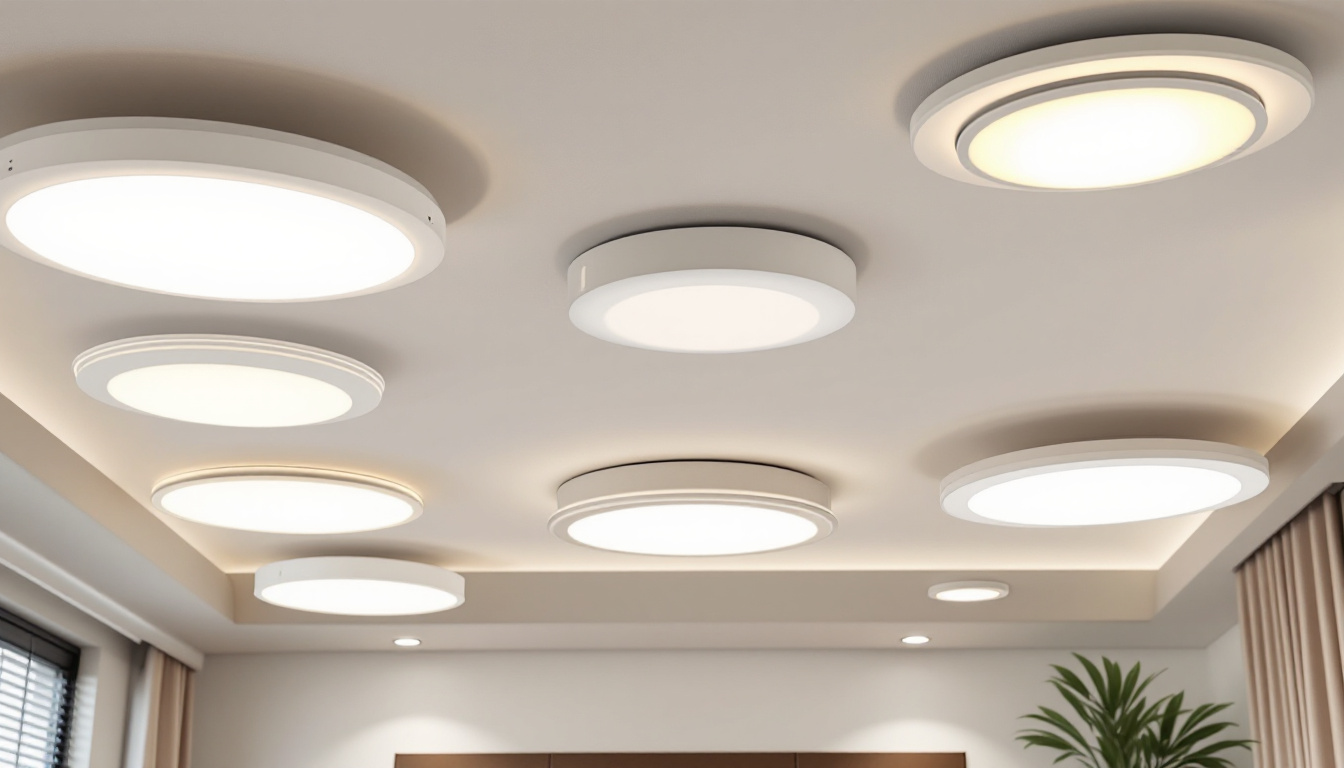

In the ever-evolving world of lighting design and installation, clients have increasingly high expectations from their lighting contractors. The concept of “Lotus Light” embodies not just aesthetic appeal but also functionality, sustainability, and innovation. Understanding what clients expect can significantly enhance the relationship between contractors and their clients, leading to successful projects and satisfied customers.
At the core of every successful lighting project is a deep understanding of client needs. This involves not just listening to what clients say, but also interpreting their vision and translating it into a practical lighting solution. Each project begins with a thorough assessment of the space and the specific requirements that the client has in mind, which can range from aesthetic preferences to functional necessities.
Effective communication is paramount in establishing a solid foundation for any project. Clients often have a vision in mind, but may struggle to articulate it. Lighting contractors should encourage open dialogue, asking probing questions to uncover the essence of the client’s needs. This can include inquiries about the desired ambiance, functionality, and specific areas that require emphasis. Understanding the emotional response a client wants to evoke through lighting can lead to more tailored solutions that resonate with their vision.
Moreover, regular updates and check-ins throughout the project can help keep clients informed and engaged. This not only builds trust but also provides opportunities to address any concerns before they escalate. Utilizing visual aids, such as mood boards or 3D renderings, can further enhance communication, allowing clients to visualize how their ideas will come to life. This collaborative approach fosters a sense of partnership, making clients feel valued and heard throughout the process.
Every client is unique, and so are their lighting needs. A one-size-fits-all approach is rarely effective. Clients expect contractors to offer personalized solutions tailored to their specific requirements. This could involve selecting the right fixtures, adjusting the layout for optimal light distribution, or incorporating smart technology for enhanced control. The integration of energy-efficient options and sustainable practices can also be a significant aspect of personalization, appealing to environmentally conscious clients.
Taking the time to understand the client’s lifestyle, preferences, and the intended use of the space can lead to more satisfying results. For instance, a family home may require different lighting solutions compared to a commercial space, and recognizing these distinctions is crucial. In a residential setting, soft, warm lighting may be preferred for relaxation areas, while brighter, task-oriented lighting might be essential in kitchens or workspaces. Additionally, considering factors such as the time of day and seasonal changes can help in designing a lighting scheme that adapts to the client’s needs, enhancing both functionality and aesthetic appeal.
Clients expect their lighting contractors to possess a high level of technical expertise. This encompasses not only knowledge of the latest lighting technologies but also an understanding of how these technologies can be applied effectively in various settings.
The lighting industry is constantly evolving, with new trends emerging regularly. Clients appreciate contractors who stay updated on the latest advancements in lighting technology, such as energy-efficient LEDs, smart lighting systems, and sustainable design practices. Knowledge of these trends allows contractors to offer innovative solutions that can enhance the overall project.
Furthermore, being well-versed in current design trends can help contractors provide valuable insights to clients. For example, understanding the growing popularity of minimalist designs or biophilic lighting can guide the selection of fixtures and layouts that resonate with contemporary aesthetics.
Clients expect contractors to be knowledgeable about local building codes and regulations related to lighting installations. This includes understanding safety standards, energy efficiency requirements, and any specific regulations that may apply to commercial versus residential projects.
Being well-informed about these regulations not only ensures compliance but also protects the client from potential legal issues down the line. Clients appreciate contractors who can navigate these complexities with ease, providing peace of mind throughout the project.
With increasing awareness of environmental issues, clients are more inclined to choose lighting solutions that are sustainable and energy-efficient. Contractors are expected to incorporate these considerations into their designs and recommendations.
Clients are often looking for ways to reduce their energy consumption and lower utility bills. Lighting contractors should be prepared to discuss energy-efficient options, such as LED lighting, which can significantly reduce energy usage compared to traditional incandescent bulbs. Providing clients with information on the long-term savings associated with these solutions can also be a persuasive selling point.
In addition to energy efficiency, contractors should also consider the environmental impact of the materials used in lighting fixtures. Clients may appreciate options that utilize recycled materials or are manufactured using sustainable practices.
Smart lighting technologies are becoming increasingly popular among clients who seek convenience and control over their lighting environments. Contractors should be knowledgeable about various smart lighting systems available on the market and how they can be integrated into a client’s home or business. This includes understanding compatibility with home automation systems, app controls, and energy monitoring features.
By offering smart lighting solutions, contractors can help clients achieve not only enhanced functionality but also improved energy efficiency. Demonstrating the benefits of these technologies can lead to greater client satisfaction and loyalty.
Lighting is a crucial element of interior design, and clients expect contractors to have a keen eye for aesthetics. The right lighting can transform a space, enhancing its beauty and functionality.
Clients often seek lighting solutions that create a specific ambiance or mood in their spaces. Whether it’s a warm, inviting glow for a cozy living room or bright, focused lighting for a workspace, contractors should have the expertise to recommend fixtures and layouts that achieve the desired effect.
Understanding the psychological effects of different lighting types and colors can also help contractors guide clients in making informed decisions. For example, cooler tones may be more suitable for task-oriented areas, while warmer hues can create a relaxing atmosphere.
Lighting should complement the overall interior design of a space. Clients expect contractors to consider the architectural elements and decor when selecting fixtures. This means being aware of the style, color palette, and materials used in the space.
Collaborating with interior designers or architects can further enhance the effectiveness of the lighting design. By working together, contractors can ensure that the lighting not only serves its functional purpose but also enhances the overall aesthetic appeal of the environment.
Clients expect a seamless experience from lighting contractors, which requires strong project management skills. This encompasses everything from initial consultations to the final installation and beyond.
Clients value punctuality and efficiency. They expect contractors to adhere to timelines and deliver projects on schedule. Effective project management involves careful planning, resource allocation, and coordination with other tradespeople involved in the project.
Regular updates on the project’s progress can help manage client expectations and alleviate any concerns about delays. Clients appreciate contractors who can navigate challenges while keeping the project on track.
Once the installation is complete, clients expect ongoing support and maintenance options. This may include troubleshooting any issues that arise, providing guidance on how to use smart lighting systems, or offering maintenance services for fixtures.
Providing a clear plan for post-installation support can enhance client satisfaction and foster long-term relationships. Clients are more likely to recommend contractors who demonstrate a commitment to their needs even after the project is finished.
Cost is a significant factor in any lighting project, and clients expect transparency from their contractors regarding pricing. This includes providing detailed estimates and breaking down costs associated with materials, labor, and any additional services.
Clients appreciate receiving detailed estimates that outline the scope of work and associated costs. This transparency helps build trust and allows clients to make informed decisions about their budgets. Contractors should be prepared to explain the rationale behind the costs, including the quality of materials and the expertise required for installation.
Additionally, offering clients various options at different price points can help them choose solutions that align with their budgets without compromising on quality.
Managing a budget effectively is crucial for client satisfaction. Contractors should be proactive in discussing budget constraints and finding creative solutions that meet client needs without exceeding their financial limits. This may involve suggesting alternative fixtures or adjusting the scope of work to fit within the budget.
By demonstrating a commitment to budget management, contractors can earn the trust and respect of their clients, leading to repeat business and referrals.
Ultimately, clients expect lighting contractors to not only meet their immediate needs but also to build lasting relationships. This involves fostering trust, reliability, and a commitment to excellence.
After completing a project, contractors should take the initiative to follow up with clients. This can be a simple check-in to ensure satisfaction with the installation and to address any lingering questions or concerns. Soliciting feedback can provide valuable insights into the client’s experience and areas for improvement.
Clients appreciate contractors who show genuine interest in their satisfaction and are willing to make adjustments if necessary. This proactive approach can lead to positive word-of-mouth referrals and repeat business.
Engaging with the local community can also enhance a contractor’s reputation and foster relationships with clients. Participating in community events, supporting local initiatives, or collaborating with other businesses can create a positive image and demonstrate a commitment to the area.
Clients are more likely to choose contractors who are actively involved in their communities, as it reflects a sense of responsibility and dedication beyond just completing projects.
In the world of lighting design and installation, understanding client expectations is vital for success. From effective communication and technical expertise to sustainability considerations and design aesthetics, lighting contractors must be equipped with the knowledge and skills to meet the diverse needs of their clients.
By prioritizing project management, cost transparency, and building lasting relationships, contractors can create a positive experience that not only satisfies clients but also fosters loyalty and referrals. Embracing the principles of “Lotus Light” can lead to a brighter future for both contractors and their clients, illuminating spaces with creativity, innovation, and care.
As you strive to meet and exceed your clients’ expectations in lighting design and installation, LumenWholesale is here to support you every step of the way. With our commitment to providing spec-grade lighting products at unbeatable wholesale prices, you can confidently deliver the “Lotus Light” experience to your clients. Our extensive selection of high-quality, reliable lighting solutions ensures that you can find the perfect match for any project, big or small. Plus, with the convenience of free shipping on bulk orders, you can enjoy the best value without any hidden fees. Elevate your lighting projects with the perfect blend of quality, affordability, and convenience at Wholesale Lighting at the Best Value.
Discover how outdoor home lighting fixtures are revolutionizing the lighting industry, offering contractors innovative solutions to enhance aesthetics, improve energy efficiency, and elevate outdoor spaces.

Discover innovative cost-saving strategies for lighting contractors using LED strip lights.

Discover the essential insights lighting contractors need about metal halide lamps, from their energy efficiency and lifespan to installation tips and safety considerations.

Explore the pros and cons of false ceiling light covers versus alternative options in this insightful guide tailored for lighting contractors.
Get notified when NEW deals are released.
Optimize your budget with wholesale discounts.
Only top-quality, specification-grade lighting products.
No additional costs at checkout - what you see is what you pay.
We understand the unique needs of contractors.